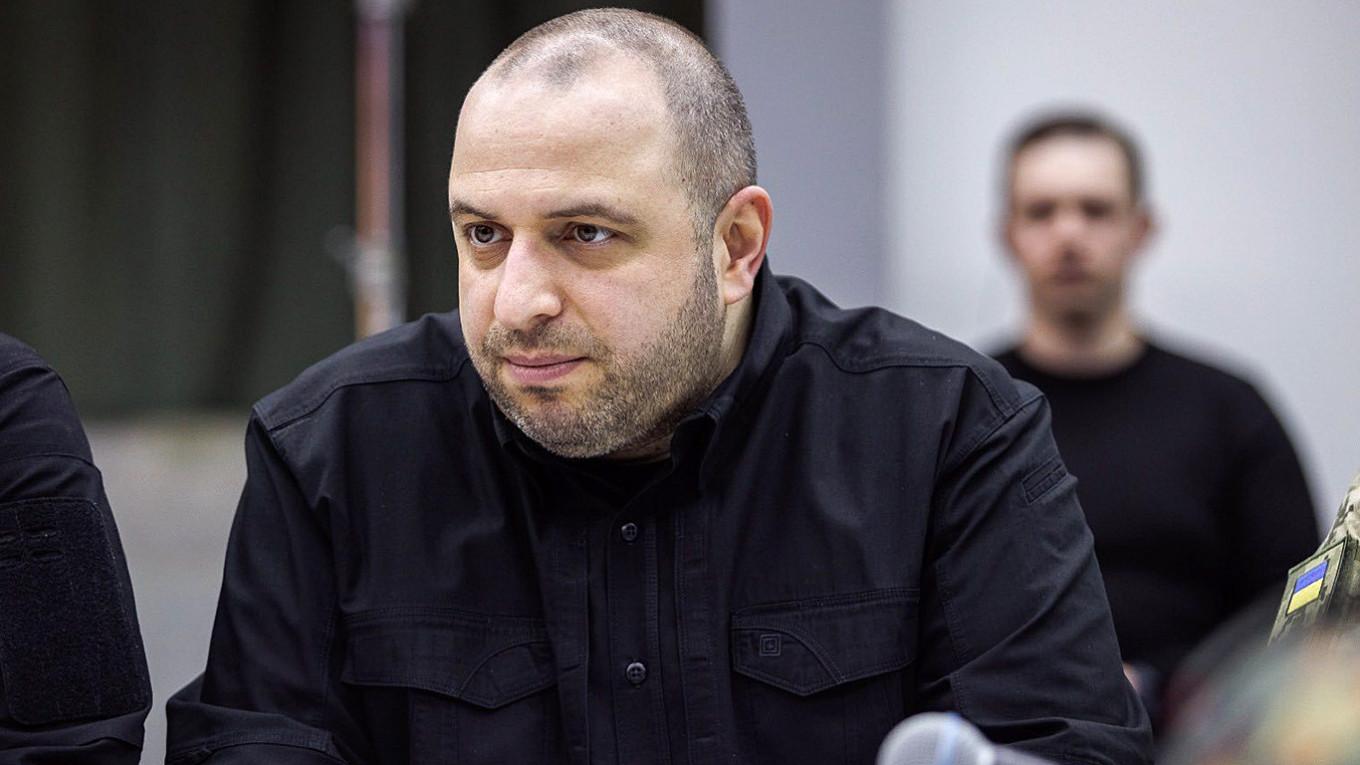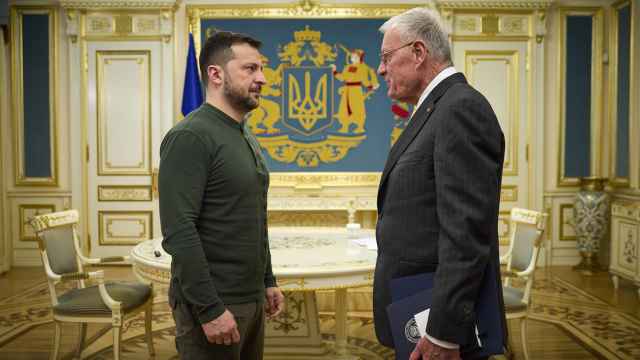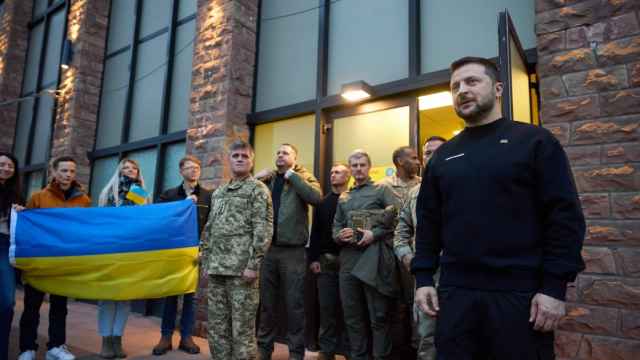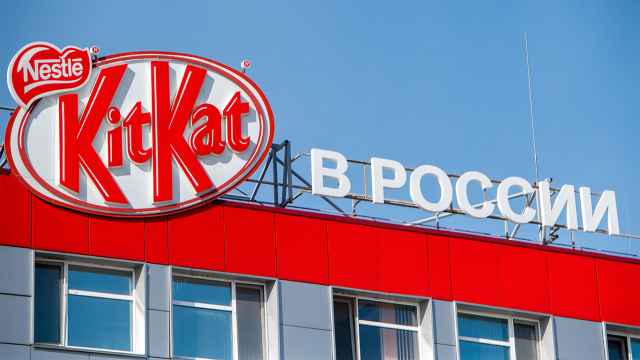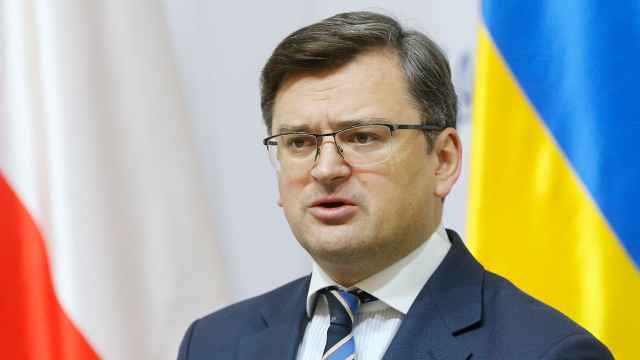Rustem Umerov, the Ukrainian defense minister leading Kyiv's delegation at peace talks with Russia on Friday, is hailed by his colleagues as a skilled and pragmatic negotiator.
The 43-year-old former businessman became defense minister in 2023, a year and a half into Russia's invasion, and has spearheaded some of Kyiv's most sensitive wartime diplomacy with both Russia and the West.
He has also been embroiled in scandals during his tenure, accused of a lack of transparency and the subject of a probe into alleged abuse of power.
Still, Umerov is one of only a handful of Ukrainians with experience brokering deals involving Moscow during the war.
He also has the ear of Andriy Yermak, the powerful head of Ukraine's presidential office.
President Volodymyr Zelensky said that Umerov would lead a slimmed-down Ukrainian team at talks in Istanbul.
Kyiv has few expectations of a breakthrough, especially after Russian President Vladimir Putin declined to come and dispatched a relatively low-level delegation.
After seeing him in talks with U.S. officials in Saudi Arabia earlier this year, Pavlo Palisa, a respected former army commander and deputy head of Zelensky's office, hailed Umerov's negotiating prowess.
"I am very impressed with his manner of conversing with partners. His perfect English and eastern charm work wonders," Palisa said in an interview published in April.
Umerov has highlighted his unflappability.
"It's impossible to put pressure on me," he said in 2022.
Crimean roots
Umerov is a prominent member of the Crimean Tatars, a Muslim ethnic group from the Russian-annexed Black Sea peninsula that Kyiv says it will never give up hopes of regaining.
His nomination as defense minister in 2023 was called a "beautiful political gesture" by Serhiy Leshchenko, an adviser to Yermak.
It was a sign that "there will be no compromise on Crimea," he told AFP.
Umerov was born in 1982 in Soviet Uzbekistan, where his family had been deported under Josef Stalin.
He moved to Crimea as a child when the Crimean Tatars, who make up some 12-15% of Crimea's population, were allowed to return.
Before being elected an MP in 2019 with a pro-European party, he had a background in business and ran an investment company.
Announcing that he would lead the Ukrainian delegation, Zelensky highlighted Umerov's fluency in English and Turkish as well as Ukrainian and Russian.
Like Russia's top negotiator, Kremlin aide Vladimir Medinsky, Umerov was part of the failed 2022 talks between Russia and Ukraine.
But he has conducted successful indirect diplomacy with the Russians.
He took part in talks to set up the UN and Turkish-brokered Black Sea grain deal, the most substantial agreement involving both sides struck since Russia invaded.
Although Russia abandoned it after a year, the initiative helped Ukraine start exporting millions of tons of grain — shipments it managed to boost after the deal broke down.
Umerov also played a key role in a major 2022 prisoner exchange in which Russia released several top commanders who defended the besieged port city of Mariupol.
'Pragmatist,' scandals
Umerov is "charismatic" and "a good communicator" who is "quickly liked" by people around him, Leshchenko said.
"He knows how to get results with few resources, thanks to his personal contacts," he added.
However, last September, three prominent experts accused him of presiding over a "ministry of chaos" and criticized for a lack of transparency over procurement, including related to Western military support.
Ukraine's anti-corruption watchdog in January announced it was investigating Umerov for alleged abuse of power after he overturned a procurement decision.
He denied the accusations and said he was trying to restore confidentiality to sensitive state orders.
Ukraine's military has been blighted by corruption amid a massive influx of cash to the defense sector during the war.
A Message from The Moscow Times:
Dear readers,
We are facing unprecedented challenges. Russia's Prosecutor General's Office has designated The Moscow Times as an "undesirable" organization, criminalizing our work and putting our staff at risk of prosecution. This follows our earlier unjust labeling as a "foreign agent."
These actions are direct attempts to silence independent journalism in Russia. The authorities claim our work "discredits the decisions of the Russian leadership." We see things differently: we strive to provide accurate, unbiased reporting on Russia.
We, the journalists of The Moscow Times, refuse to be silenced. But to continue our work, we need your help.
Your support, no matter how small, makes a world of difference. If you can, please support us monthly starting from just $2. It's quick to set up, and every contribution makes a significant impact.
By supporting The Moscow Times, you're defending open, independent journalism in the face of repression. Thank you for standing with us.
Remind me later.


